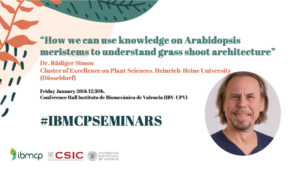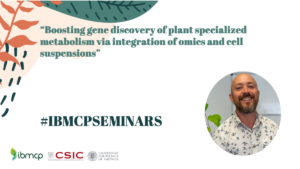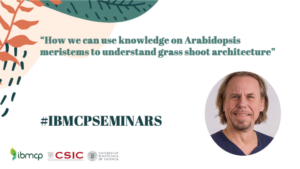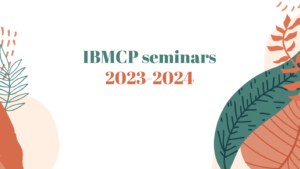Friday January 26th 12:30h. Conference Hall, Instituto de Biomecánica de Valencia (IBV-UPV)
Dr. Rüdiger Simon
Cluster of Excellence on Plant Sciences. Heinrich-Heine University, Düsseldorf
“How we can use knowledge on Arabidopsis meristems to understand grass shoot architecture“
Abstract
Plant growth and development strongly depends on the activities of meristems, which can generate flowers, leaves or new branches. The number, size, position and identity of meristems ultimately determines how many seeds a plant can generate, or the size of its fruits. The last decades have allowed immense progress in our understanding of basic meristem activities, mostly with lab model plants such as Arabidopsis. Grasses like barley are important crop plants, and we are now starting to employ knowledge on meristems to investigate how barley architecture is determined. But there are also fundamental biological questions that we can now address using barley, and I will report on some new unexpected discoveries that we made recently.
BioRüdiger studied biology at the University of Cologne, Germany, where he received his PhD in 1990 for research on transposable elements in maize and meristem development in tomato. He then joined the John Innes Centre in Norwich, UK as a postdoctoral researcher to work with Enrico Coen on flower development in Antirrhinum and later with George Coupland on the control of flowering time in Arabidopsis. In 1996, he started his own lab at the Univesity of Cologne with a focus on stem cell regulation in plant meristems. In 2002, he accepted a call for a professorship in plant developmental genetics at the Heinrich Heine University in Düsseldorf, Germany. The Simon Lab´s research focusses on the activities of meristems, their initiation and organisation and principles of intercellular signalling pathways. Such signalling pathways are mediated by secreted peptides, but also involve transport through plasmodesmata. The lab uses a wide range of different tools to unravel these processes: molecular biology, biochemistry, genetics and genomics, and very detailed imaging (microscopy) approaches that allow to investigate signal transduction processes, assembly and disassembly of protein complexes and protein-protein interaction with subcellular resolution in the living plant. Recent focus points are studies on meristem development in barley, and structural and functional analysis of plasmodesmata in a variety of different organisms. Find some recent research attached.
If anyone is interested in meeting with the speaker, please contact Paco Madueño (madueno@ibmcp.upv.es)






